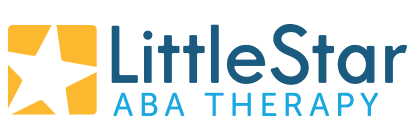Celebrating our amazing Ryan
By Lisa Striewe
As a mother of a teenage boy with autism, I am often in awe of just how far we’ve come. Ryan was diagnosed with PDD, NOS when he was 3 ½ years old. He had very little language and extreme anxiety about the world around him. The prognosis, according to the doctors, was not good. I went home with guilt, fear and worry of what his life would be like and how I, his mother and advocate, could help him.
Eleven short years later, we’re in the kitchen. Ryan is making dinner. Tonight is his night to do so. We take turns and he’ll make dinner while I do the dishes. Other nights our roles are reversed. But this particular evening, while he’s making dinner, he expresses some anxiety about going into high school next year. As I listen to him, I gather that while some anxiety is coming from the prospect of high school, the majority of it is stemming from what that means. In his mind, he needs to prepare and be ready to be out on his own, only a few short steps after starting high school. My mind goes back to my son, at 3 years old. Who would have known that we’d come so far and that now the anxiety is about if he has what it takes to go to college, get a job and live on his own or …yes, it’s coming….if he will find a girlfriend, get married and have a family?
As we continue our discussion, we broke the concerns into categories and agreed that while he needed to have faith in his abilities, there were some skills that we could work on to make him feel more confident about where he’s going and skills that would get him prepared for the life that he wants. We created short-term and long-term goals. Short-term goals included better study skills since he knows that high school and college will require more studying and project work, money and budgeting since he wants to make sure that he has enough money to do all of the things he wants to do. He wants me to help him find a part-time job this summer because, according to him, “it will help me become more dependable to those around me”.
His long-term goals include learning to drive and developing more tolerance for social interactions in preparation for dating when he is appropriately aged to do so.
As we finished our meal, I realized that the future is waiting for Ryan. We don’t know what it will bring, but we do know that if we listen to each other and work together, he will be closer to reaching his goals. And I, his mother and lifetime advocate and cheerleader, will be right there celebrating every step, every goal reached and every new goal set. After watching my son for the last 14 years, I know that he is capable of achieving everything he desires. It may take a little longer, may take a few extra steps or a few false starts, but he will do it, because that’s who he is.
Lisa Striewe is human resource and accounting coordinator at Little Star Center.
